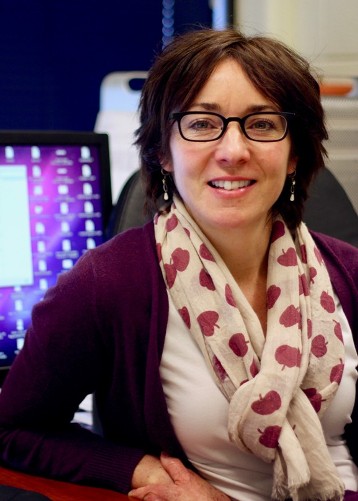
Dana Philpott is a Professor in the Department of Immunology at the University of Toronto and co-director of the Canadian Foundation for Innovation / Ontario Research Fund- Host-Microbiome Research Network, where she has established the first gnotobiotic (germ-free) mouse facility in Toronto. She obtained her BSc at the University of Calgary and then moved to Toronto to complete her PhD at the University of Toronto, in what was the Department of Microbiology, which was later merged with Molecular Genetics. Here, she worked on the pathogenesis of disease-causing Enteropathogenic Escherichia coli, which are the bacteria associated with hemorrhagic colitis and hemolytic uremic syndrome. Her supervisor was Dr. Phil Sherman, who is a gastroenterologist at the Hospital for Sick Children. Because of her interest in further exploring host-pathogen interactions, Dr. Philpott began her post-doctoral training at the Institut Pasteur in Paris, France, under the supervision of Dr. Philippe Sansonetti. Dr. Sansonetti was responsible for the forging of a new discipline of microbiology, termed “cellular microbiology”, where the science of how pathogenic microorganisms hijack host cell functions is explored. Dr. Philpott studied host responses to Shigella flexneri, the cause of bacilliary dysentery and a major infectious agent leading to endemic diarrhea in developing countries. During her time as a post-doctoral fellow, Dr. Philpott discovered how this bacterium initiated inflammatory responses in infected epithelial cells. Dr. Philpott was one of the first scientists in France to be recruited to a new program of young group leaders at the Institut Pasteur. Working with her now partner, Dr. Stephen Girardin, she explored innate immunity and contributed to the discovery of Nod proteins, which are cytosolic innate immune receptors triggered by bacterial ligands, specifically, motifs within the cell wall constituent, peptidoglycan. She was recruited to the University of Toronto’s Department of Immunology in 2006.